An artist of the people
By: No Author Indicated

An artist of the people
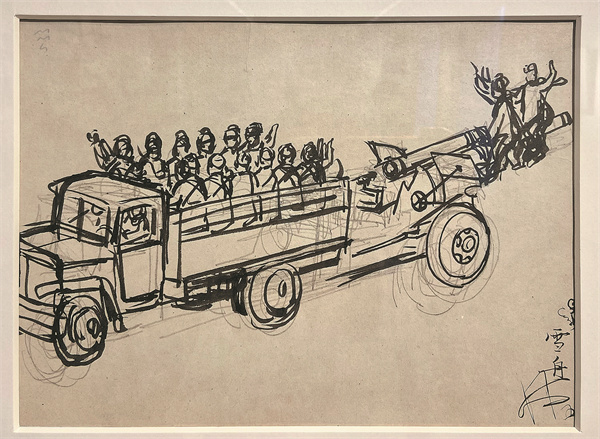
Ye Qianyu's sketches shown at an ongoing exhibition at the China National Academy of Painting include examples of work the artist created for Mao Dun's novel Ziye and drafts for his seminal piece The Liberation of Beiping.[Photo provided to China Daily] This caption is the same as and applies to every image below save for the portrait of the artist himself.
Ye Qianyu (1907-95) was one of the most influential Chinese artists of the 20th century. Of his oeuvre, comprising ink paintings, drawings and cartoons, Ye is best known for his depictions of dancers-ballet dancers, folk dancers and dancers of ethnic groups-and performers of Chinese opera. His sketched strokes deliver a strong sense of motion and dynamism.
The long-standing popularity of Ye's figure paintings can be attributed to not only the techniques he honed over the years, but also his shrewd observation of people from different walks of life.
His sincere concerns for those at the grassroots-the social group which he considered himself to be a part of-are also vividly presented in his comic illustrations and preparatory sketches for paintings.
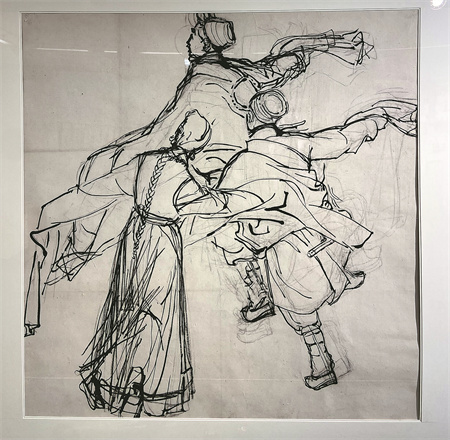
Ye once said: "I like people. Most of the time, I study their movements, their mood, the atmosphere surrounding them and their relationships. I work hard on showing their physiques in motion."
Ye Qianyu: Research of His Themed Works and Illustration Art, an exhibition now on at the China National Academy of Painting, explores how the artist turned his understanding of figures from varying social ranks into artistic presentations.
On show are dozens of drafts he drew for The Liberation of Beiping, an ink-color painting that depicts a joyful scene of people in Beijing welcoming People's Liberation Army troops entering the historical city in 1949. He created the piece in celebration of the 10th anniversary of the founding of the People's Republic of China, and it is now in the collection of the National Museum of China in Beijing.
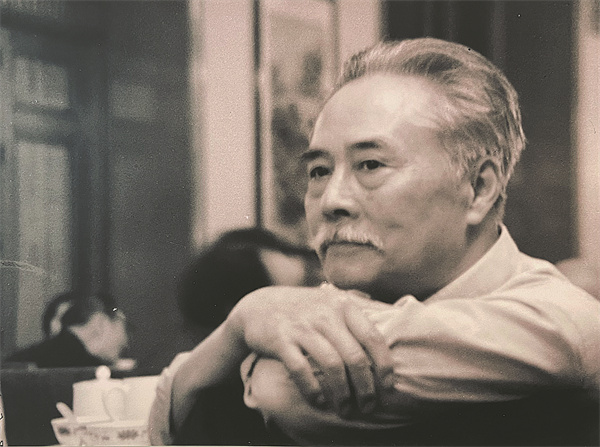
Chinese artist Ye Qianyu.[Photo provided to China Daily]
The drawings offer a detailed look at different groups of people participating in a long march-gatherings of citizens who wave small red flags, farmers who put on festive outfits and dance in groups and soldiers on trucks and greeting onlookers.
"These works enable viewers to feel the pulse of history, in an intimate manner," says Yu Yang, an art critic.
The works echo Ye's reputation as "a master of sketches", as he was able to capture the physical features of people, and their mentality, in a short period of time. It was a skill he perfected not at professional schools, but in real-life situations.
Born in Tonglu county, Zhejiang province, Ye developed an interest in painting and folk art during childhood. After finishing middle school, he went to Shanghai to earn a living. He worked in shops, drew advertisements and textbook illustrations, and also designed clothes and stage sets.
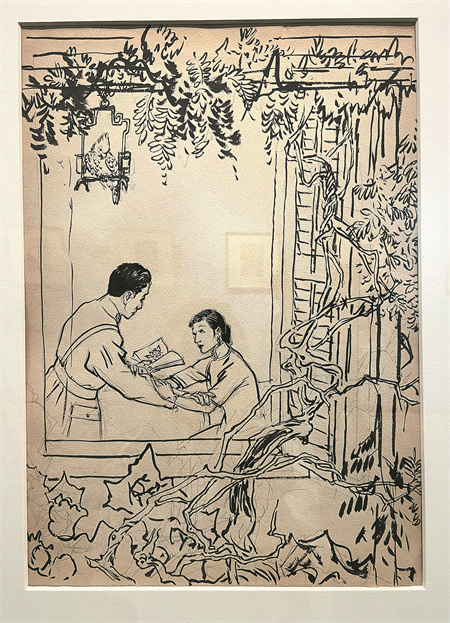
He taught himself classic Chinese painting. He also focused on manhua, the Chinese cartoon style that incorporated the techniques of ink painting. He co-founded Shanghai Manhua, a weekly magazine, and was the chief editor of Time Pictorial. During the War of Resistance Against Japanese Aggression (1931-45), he joined other artists in a campaign to create cartoons to motivate people in the defense against invaders.
Ye's diverse career experiences rendered his works a dynamism and social depth.
In the early 1950s, Ye rose to the helm of the Chinese painting department of the Central Academy of Fine Arts in Beijing, a position he held until 1983. He then served as the deputy director of the China National Academy of Painting.
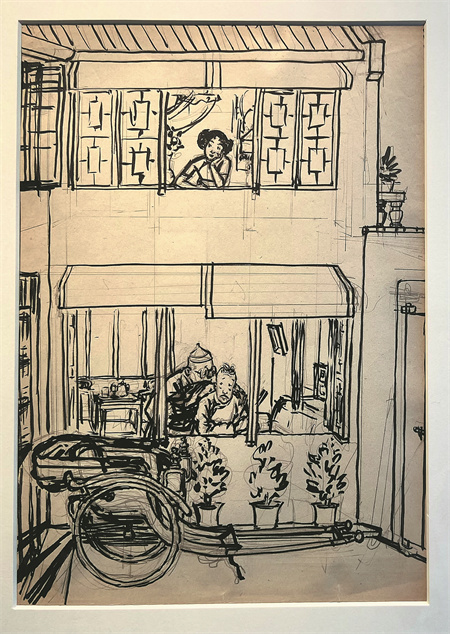
Ye donated over 5,000 works to the China National Academy of Painting, and the drawings shown at the current exhibition come from this collection.
The exhibition is the second at the academy to show pieces from Ye's donation. The first exhibition was held two years ago.
One of the highlights of the current exhibition is a collection of illustrations Ye drew for Ziye (Midnight), a novel authored in 1933 by Mao Dun, who was not just a novelist, but also an essayist and critic, also from Zhejiang province. The novel depicts the modernity and life of the upper class in metropolitan Shanghai, while exposing a social crisis under the influence of colonialism and capitalism.
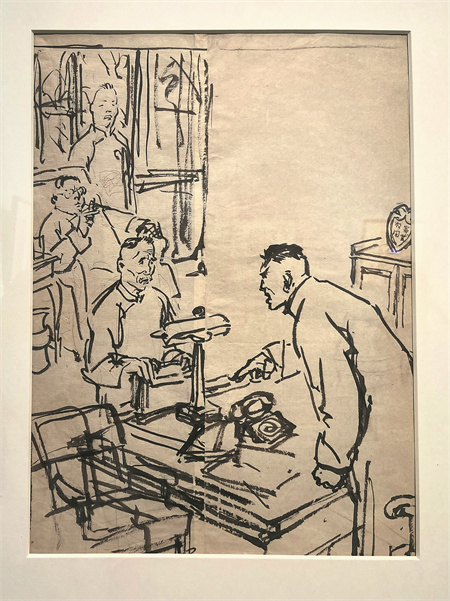
Ye's works were drawn from his personal experiences of living in Shanghai and socializing with people from different backgrounds. These drawings are on public view for the first time since being donated to the China National Academy of Painting, according to Lu Yushun, the academy's director.
Xie Zhigao, a resident artist at the China National Academy of Painting and a former student of Ye, says the drawings on show stand as fine pieces of art themselves, demonstrating Ye's decades of cultural accumulation and serious attitude toward his work.
"He paid great attention to every sketch, no matter how small. Such patience with art, and his unyielding spirit, are what people should learn in order to carry on the cultural lineage of our country," Xie says.

The exhibition runs through Oct 3.

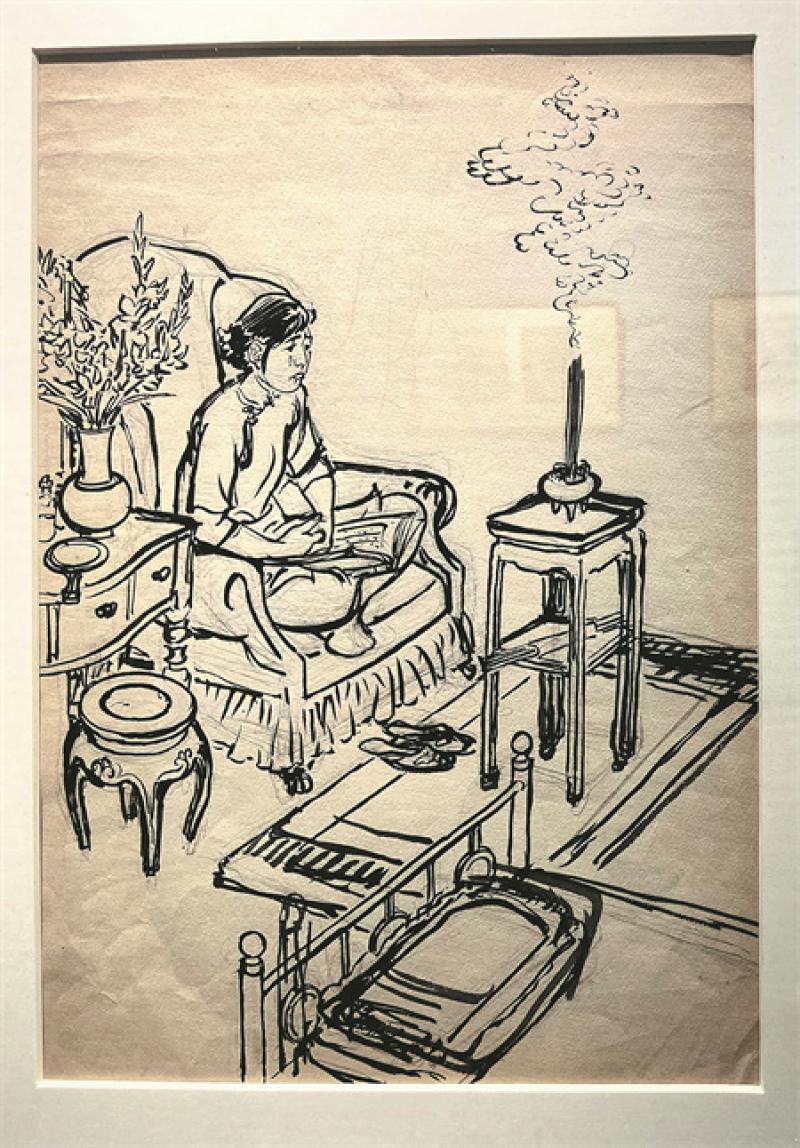
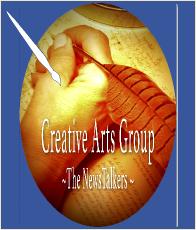





I thought these drawings were a real change of pace.
Nice!
A unique style for here.
Will post a link to this article shortly.
Thank you.